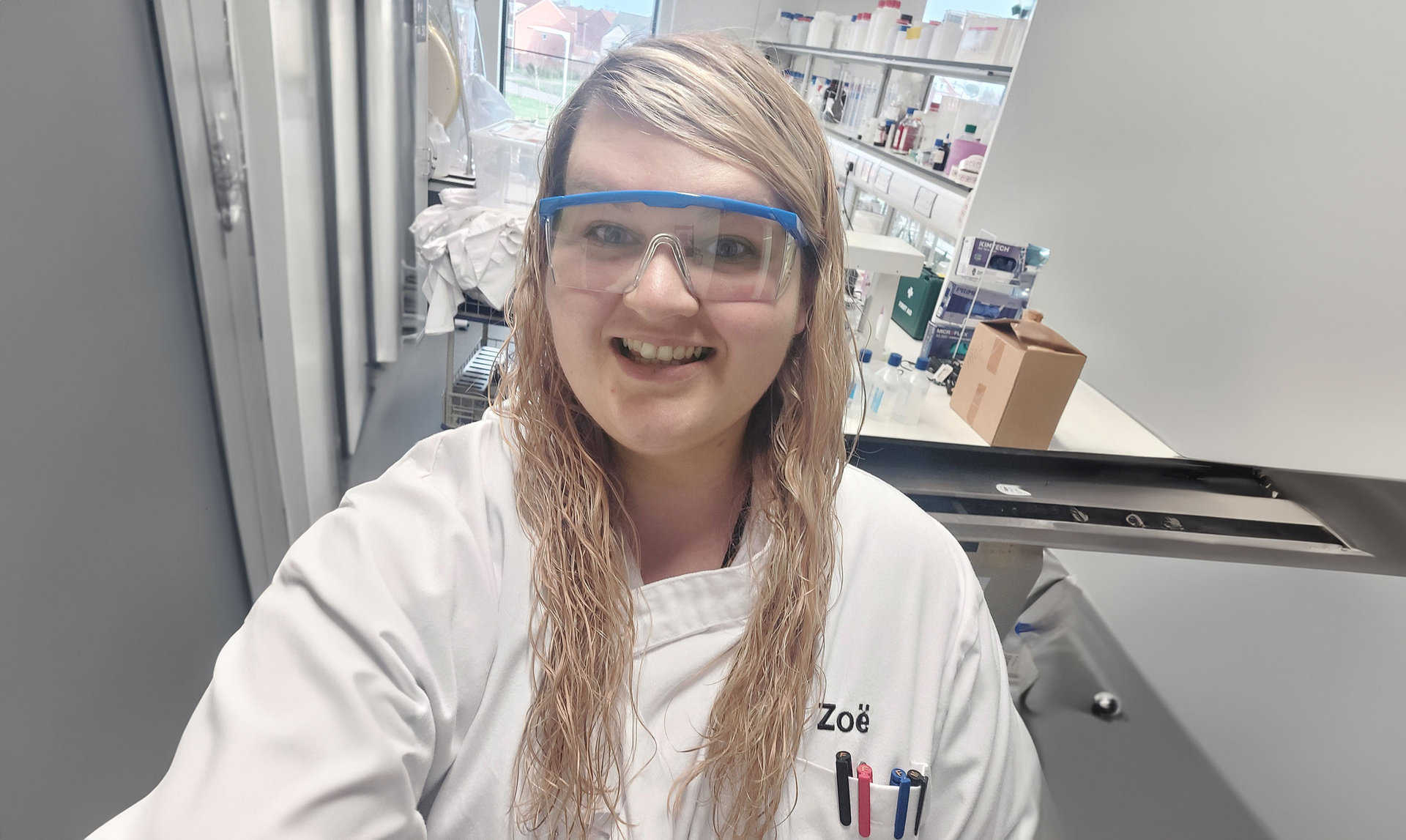
Life communications
In recognition of International Women’s Day, Life throws the spotlight on women working in exciting STEM jobs in the North East. We caught up with Zoe Bell, a PhD student in Microbiology at Teesside University.
I’ve never considered science as ‘something for boys’, mainly because I was brought up to believe that I could do or become anything I wanted, and I was always supported to make my own choices.
I’ve always loved animals and as a child I wanted to be a marine biologist – I used to read up on different sea life and became a qualified PADI Open Water diver when I was just 11 years old.
I spent a month in Thailand working on a marine conservation project with Projects Abroad when I was 17 and it was around this time, I also developed an interest in pharmaceuticals. I liked the idea of working on medicines to help people.
After getting 11 GSCEs, I decided to study Biology, Chemistry, Maths and Geography at Newcastle College, but it wasn’t a smooth path. I dropped Maths after AS level and I didn’t get the grades I was hoping for in the other subjects. I remember feeling devastated on results day and I was sure I’d blown all chances of going to university.
But I received a call from a course leader on the Pharmacy Master’s degree at my first choice University of Huddersfield. They were so impressed by my application and interview that they made me an offer to do a foundation year first before moving onto the Master’s in Pharmacy degree.
My goal at this point was to get into the pharmaceutical industry and I later decided to swap courses onto a Pharmaceutical Chemistry course, as it was better suited to my long-term goals.
I graduated with an MSci in Pharmaceutical Chemistry during the pandemic before starting a PhD at Teesside University’s National Horizons Centre, where I’m currently in my final year. My research centres around isolating the section of a bacteria’s DNA which codes to make ‘weapons’ to kill off other bacteria in their environment to see if this could have medical applications to help treat people who have infections.
I’m combining my studies with lecturing, teaching practical lab classes to Master’s students and undergraduates, and I’m also a research technician at the National Horizons Centre.
The thing I love most about my work is that no one day is ever the same and I love being a STEM ambassador, helping to inspire the next generation of scientists.
It’s so important that we encourage more girls and women into science – less than 30% of the STEM workforce in the UK are female and yet their research and contributions to science have been invaluable in the past and for the future.
It is important to shine a spotlight on females in science roles and their research to inspire others and ultimately show that jobs don’t have a gender.
